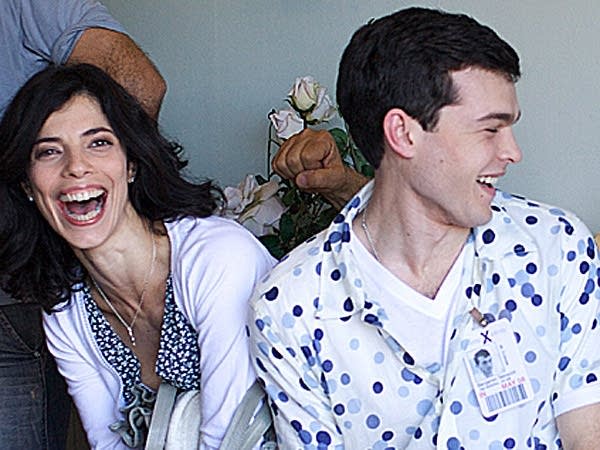Francis Ford Coppola makes his own rules
Go Deeper.
Create an account or log in to save stories.
Like this?
Thanks for liking this story! We have added it to a list of your favorite stories.

Having made classics like "Apocalypse Now" and the Godfather movies, director Francis Ford Coppola is now able make pretty much any movie what he wants.
So at age 70, he has just directed the first original script he has written in three decades. The resulting film, called "Tetro," explores the rivalries within families, a subject Coppola said lies close to his heart.
"Tetro" begins as 17-year-old Bennie turns up on the doorstep of an apartment in Buenos Aires.
It's the home of his older brother who suddenly left the U.S. almost 10 years before. He apparently had a dispute with their father, a famous conductor. Bennie discovers his brother is married to Miranda and has changed his name to Tetro. He also isn't interested in talking about his past.
Turn Up Your Support
MPR News helps you turn down the noise and build shared understanding. Turn up your support for this public resource and keep trusted journalism accessible to all.
"People around here don't know much about me. Miranda doesn't even know who our father is. I'd like to keep it that way," Tetro says in the film.
"I don't care, yeah," replies Bennie, although his face falls.
"What?" demands Tetro.
"It's just it's going to be kind of hard to have a conversation if I can't ask any questions," says Bennie.
"Who wants a conversation?" demands Tetro. "I don't."
Francis Ford Coppola said many families will recognize this tension.
"All the feelings are true," Coppola said. "And the plot is totally fake."

Francis Ford Coppola said he wanted to use Tetro to explore what can happen within creative families. His own father was a classical musician and a composer, and may other family members make their living in music and films. He said inevitably some people do better than others, and that can lead to years of unhappiness.
"My question is, really, does that have to be a disturbance that's passed on through generations?" he said.
To answer this and a myriad of other complications of family life, Coppola gathered an all-star cast of American and Spanish actors and took them to Argentina. He likes to immerse himself in another culture as he shoots.
Coppola set up in La Boca, a bohemian part of Buenos Aires. Known for it's cafes where the music plays late into the night, it becomes the vibrant background for the story.
"I always have an eye open for what is happening around the camera, to see 'Oh, look what's happening over there- let's incorporate that,'" he said. "I think with this type of filmmaking you are constantly trying to be available to what is there, to incorporate into what you are doing."
Coppola creates a tense and highly emotional tale as Tetro and Bennie struggle with their pasts and their present. The story takes several surprising turns and incorporates opera, ballet and even radio.

The director also posed himself the additional challenge of making the film primarily in black and white.
"It's a different way of working," Coppola said. "The lighting is very different. It's in a way more difficult and more time consuming because, whereas in a color film the different colors tend to separate the person from the wall, in black and white it's all grays. So you have to do a lot of very artful lighting which gives the movie it's own quality."
Coppola admits that special look could actually spell financial trouble for "Tetro." Selling the broadcast rights is important for any movie, and TV and cable channels shy away from black and white films because they believe audiences don't like them.
But Coppola is self-financing Tetro. He doesn't have to answer to investors. He said he is now at a stage in his career where he wants to make films to learn something, and in particular learn something about cinema.
He says that can't be done without taking risks.
"To have the big success and to make a contribution to the form you have to go out to the wilderness without any assurances and just use you heart and your knowledge and your skills," he said. "And that doesn't go well with a business which requires hundreds of millions of dollars to pursue."
So what risks will be next for Coppola?
"I am writing a piece now and you know I have no rules," he said. "I am not trying to write a best seller. I am not trying to make a movie that will be at 4,000 multiplexes around the country, but I love to entertain the audience.
"I view making a film as though I was inviting you over my house for dinner and for sure I don't want you to leave thinking that it was a terrible dinner, or you didn't enjoy it."
Francis Ford Coppola won't reveal yet what that next project might be but he says, if he learns something along the way, it's all for the better.




